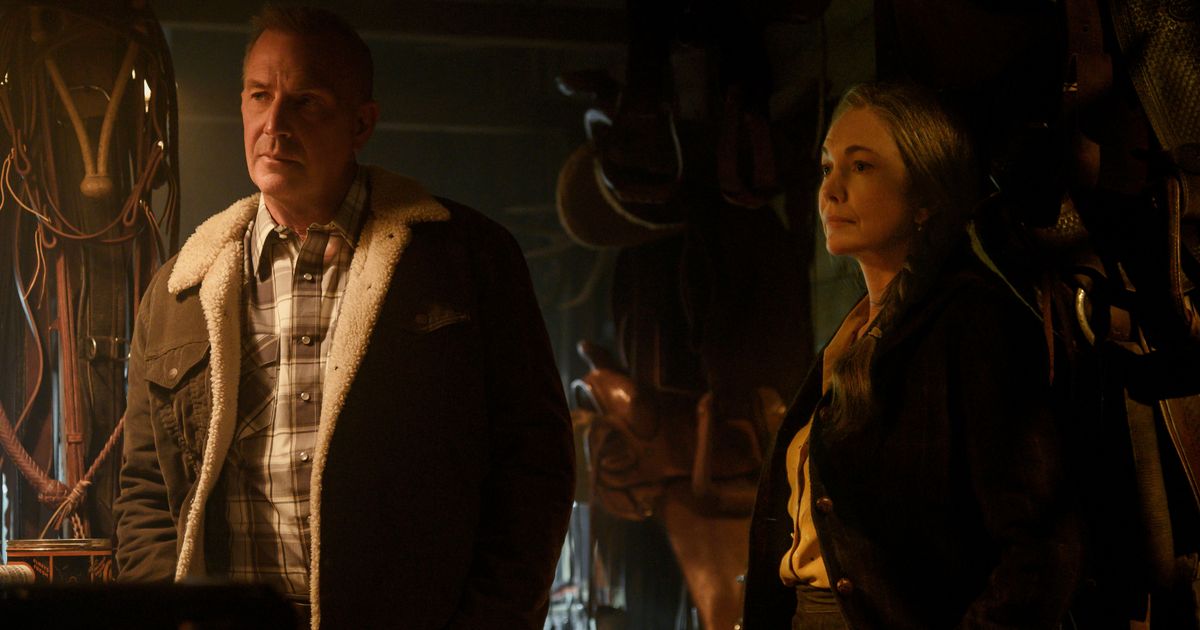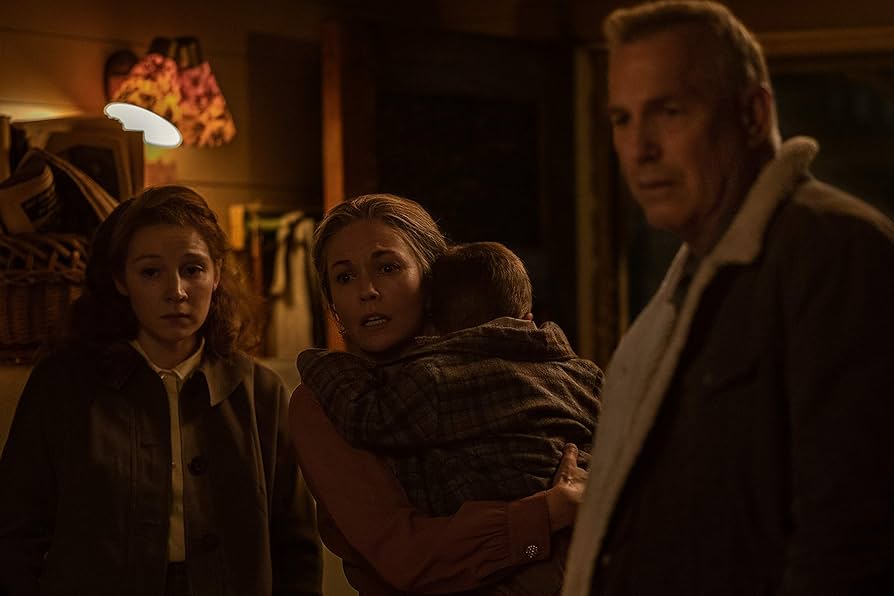Let Him Go (2020): A Haunting Western Thriller of Grief, Justice, and Relentless Love
Let Him Go (2020), directed by Thomas Bezucha and based on the novel by Larry Watson, is a quiet yet simmering neo-Western thriller that combines the emotional gravity of grief with the fierce intensity of familial love. Starring Diane Lane and Kevin Costner, the film tells the story of a couple who embark on a dangerous journey to rescue their grandson from an abusive family. Understated but potent, Let Him Go explores themes of loss, generational conflict, and the limits of moral restraint.
Set in the early 1960s in rural Montana and North Dakota, the film opens with retired sheriff George Blackledge (Kevin Costner) and his wife Margaret (Diane Lane) living a quiet life following the tragic death of their son in a horse-riding accident. Their daughter-in-law, Lorna, remarries into the Weboy family—a clan with a fearsome reputation and stronghold in the badlands of North Dakota. When Margaret witnesses the Weboys abusing Lorna and her grandson Jimmy, she becomes determined to bring them back.

Margaret's instincts and maternal strength drive the narrative, while George—stoic, principled, and reluctantly pulled back into action—serves as her moral compass and protector. The couple’s journey into North Dakota begins as a rescue mission but slowly morphs into a descent into a world of intimidation and violence, especially once they encounter the Weboy matriarch Blanche, chillingly portrayed by Lesley Manville. Blanche rules her family with manipulation and cruelty, and her every word drips with venomous control.
What sets Let Him Go apart is its blend of intimacy and dread. The first half of the film is meditative, focusing on grief, memory, and the unspoken pain between two people who’ve loved deeply and lost. But once the Weboys enter the picture, the atmosphere shifts. The film becomes an unnerving thriller with moments of brutal violence that erupt unexpectedly, shattering the quiet like a gunshot in the still prairie.

Diane Lane delivers one of her most compelling performances as a woman willing to risk everything for her grandson. Her Margaret is not invincible—she is kind, driven, and heartbreakingly human. Kevin Costner, no stranger to roles steeped in rugged masculinity, offers a restrained yet powerful performance. Together, their chemistry lends the film its emotional backbone, making the audience root for them every step of the way.
Visually, the film is beautifully shot. The vast, open landscapes of the American West are juxtaposed with tight interiors that feel increasingly claustrophobic as the story unfolds. The cinematography enhances the story’s emotional tone—wide shots echo isolation and grief, while shadowy interiors suggest lurking danger and oppression.

In conclusion, Let Him Go is a slow-burning yet deeply affecting film that combines the sensibilities of a Western with the emotional urgency of a domestic drama. It’s a story about the fierce lengths to which ordinary people will go to protect their loved ones—and the high cost of confronting evil. Anchored by stellar performances and evocative direction, the film leaves a lasting impression as both a tragic love story and a quietly searing thriller.
-1751707799-q80.webp)

